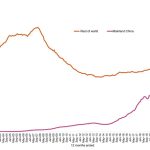The NZ Justice Select Committee has reported back on the Sale & Supply of Alcohol Act (Community Participation) Bill. This Bill singled out licensing as a focus to strengthen community involvement and to reduce alcohol harm.
“The beer, wines and spirits industry supports local communities ability to influence alcohol regulation in their region. This includes licensees, customers and the community having their say on how best to minimise alcohol harm and to ensure the highest standards of on and off licence possible,” said New Zealand Alcohol Beverages Council (NZABC) Executive Director Virginia Nicholls.
However, the NZABC suggest the proposed changes will not achieve this aim.
“The Select Committee has not heard the feedback from community groups including small business owners, beer, wine and spirit suppliers, and those who drink beer, wine and spirits safely and responsibly,” said Nicholls.
“The Justice Select Committee has ignored the concerns from the small business owners and long-standing responsible licensees who may lose their business as a result of these changes.
“This is a massive blow to small business owners who are facing skill shortages, rapidly escalating costs and increasing excise tax. Off-premise is facing increased crime, and on-premise is negotiating fair pay agreements.
“The Bill proposes removal of the party’s ability to appeal Local Alcohol Policies (LAPs) to the Alcohol Regulatory Licensing Authority (ARLA) which will restrict the appeal rights in the community. This ignores the ability to challenge decisions that unduly impact trading rights or may not be based on evidence.
“Councils do not always get things right, and losing the general appeal right to ARLA removes an important check on Council powers.
“Removing the appeal provisions will not necessarily speed up the LAP process since most delays are caused by the use of legitimate judicial reviews which have nothing to do with the current Act.
“If the LAP allows for proximity provisions to sites such as schools or a church, this will force the closure of a pre-existing on or off-licence irrespective of whether it was well run or valued by the community.
“A neighbourhood restaurant which has operated responsibly for years, may find themselves under the proposed new regime, having their license refused because a new medical centre has opened along the road.”
The new Bill requires DLCs to establish procedures so that hearings avoid unnecessary formality and cross-examination.
“It will be important that a fair procedure and process occurs for all parties involved and is consistent around the country,” said Nicholls.
“The Bill increases the number of groups and individuals who can object to an application. We do not support amendments which broaden the national community groups who do not have a link to the local community to provide submissions. This will allow interest groups with no connection to local issues to participate in decision making for local businesses.
“As public interest groups will be allowed to object to any application around the country, this will prolong the application process and result in less efficiency. At the moment there are some opposed licence applications taking more than a year to progress through objection, reporting and the DLC hearing process.
“For example a group based in Auckland that is fundamentally opposed to off or on-licences can object to an application in Southland. This group is not part of the Southland community and in principle should not have standing to object to an application that does not impact its community. This does not line up with the Bill which clearly states that its aim is to “influence alcohol regulation in their area.
“In practice the changes of who can object to applications and how hearings are run has the potential to result in an increased number of licensing hearings. This would increase some of the costs involved for participating, particularly for parties attending hearings, and in the administration of the application and hearing process.
“The vast majority of on-and off-license operators act responsibly and need surety and reducing alcohol harm would be better achieved by updating the Act and regulations.
“Since 2010 the number of licences nationwide has declined by more than 23%.
“Research tells us that the vast majority of New Zealanders drink responsibly. New Zealanders are drinking more than 25% less now than they did in the late 1970s. Further, harmful drinking – particularly among younger drinkers – has also fallen.”
Are you a Daily Wine News subscriber? If not, click here to join our mailing list. It’s free!
















